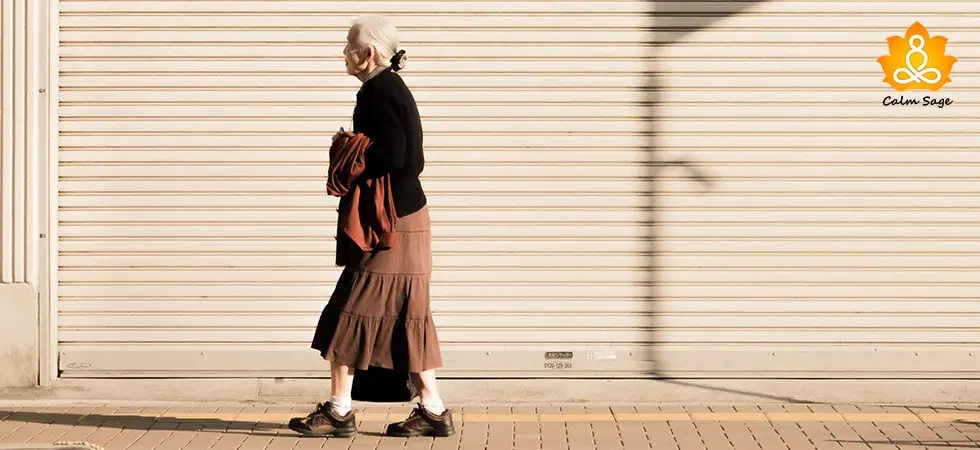Beyond Karma: The Psychology Behind The Just World Phenomenon

I’ll be the first to admit here that I’ve been guilty of watching someone trip and spill their coffee all over themselves, while a tiny voice whispered in my head that maybe they shouldn’t have been rude to me that morning.
Now, I am admitting it, but have you been through something similar? Let me give you another example; did you watch a terrible news story and thought, “There must be more to this than meets the eye.”? If you are bobbing your head to the tune of YES, then you’ve encountered the Just World Phenomenon.
When it comes to psychology, the just world phenomenon or hypothesis is a tendency to believe that the world is just and that everyone gets what they deserve. This kind of thinking often gets associated with victim blaming, too.
So, buckle up friends, because we’re going deep into the fascinating world of human and social psychology where we all want fairness but struggle to accept randomness.
Related: The Psychology Behind Digitally Blocking and Unblocking
The Just World Hypothesis: What It Is…
The Just World Hypothesis, also known as the Just World Phenomenon, is basically the idea that good things happen to good people, and bad things happen to bad people. It’s more or less a more diluted version of Karma – a simplified version of the universe where everyone gets their deserved wish.
Psychologists see this phenomenon as a cognitive bias, meaning that it is a mental shortcut that helps us make sense of the world, even if it’s not entirely accurate.
Here, let me help break it down; Think of the world as a chaotic place. Bad things can happen to anyone, regardless of who or what they are. The just world phenomenon helps us feel a sense of control by creating a narrative in our minds where there’s always a reason, even when it’s a made-up one.
Psychologist Melvin J. Lerner introduced the Just World Hypothesis in the 1960s. This theory helps explain why sometimes people victim-blame, even in situations where no one has any control over the events that happen.
The Just World Phenomenon can occur in any situation, such as;
- If you see an accident on the road, you automatically assume the driver must have been speeding or texting
- When you see someone being diagnosed with a disorder or illness, you hear whispers of their unhealthy lifestyle and assume their illness has something to do with that
- If a friend is going through a breakup, you wonder if they were a little “high maintenance” in the relationship
Do you see a pattern? We often try to become Sherlock Holmes ourselves and connect the dots between one’s actions and their experiences, even when there is no link.
Just World Hypothesis – Victim Blaming
One of the biggest downsides of this phenomenon is its connection to victim-blaming. When we believe that everyone gets what they deserve, it can be easy to unconsciously blame victims of misfortune. For example, after a robbery, you might hear someone saying, “They shouldn’t have left the house alone.” which completely ignores the robber’s actions.
This kind of victim-blaming can have some serious consequences. It can make victims of abuse or any other crime feel worse about their experiences and discourage them further from seeking help and support.
This kind of belief also causes others to think that when good things happen to people, it’s because they are deserving of them. Fortunate people are often seen as “deserving” of their success and luck.
Rather than giving credit to their success to luck, we try to assign their fortune to individual characteristics. These successful people are considered more intelligent and hard-working than less fortunate ones.
Why Does The Just World Phenomenon Happen?
The world is undoubtedly scary and unpredictable. Believing in a just world can give you a sense of control and make you feel safer. Moreover, we seek fairness and justice. Seeing bad things happen to good people can be unsettling, so this phenomenon helps us restore a sense of balance. And sometimes, it’s just easier to believe someone deserved their misfortune than to accept that bad things can happen to anyone.
Other factors that can explain why the just world phenomenon happens include;
1. A Fear of Being Vulnerable
We don’t like to think about being victims of a violent crime. So when we hear about such cases, we find it harder to assign blame to the victim and their behavior. It indirectly allows us to believe that we can avoid being vulnerable to crimes by avoiding the behaviors we blame the victims for.
2. An Urge to Lower Anxiety
Another reason why the just world phenomenon occurs is that we want to lower the anxiety we feel. Looking at the world’s injustice can make us feel anxious, so believing that a person is responsible for their bad luck allows us to believe that the world is just and fair.
The Benefits of The Just World Phenomenon
Yes, it sounds odd, but there are benefits to the just world phenomenon;
- It can motivate us to be good because we believe we’ll be rewarded for positive behavior
- It can help us make sense of the complexities of the world
- It can offer comfort and hope when we believe in a just world where all there is around is injustice
However, the Just World Phenomenon comes with its sets of drawbacks;
The Negatives of The Just World Phenomenon
When it comes to the cons of the just world phenomenon, there could be more than one;
- It can lead to victim blaming and worsen people’s experiences about their traumatic or abusive experience
- It can make us believe in an inaccurate view of the world. We fail to realize that the world isn’t fair and believing others (like we do in this case) can be disillusioning
- It can reduce empathy. When you focus on whether someone deserves their bad luck, you just make it harder for yourself to feel empathy for them
How to Avoid The Just World Phenomenon?
You can break free of the trap of the just world phenomenon. Here are some tips;
1. Challenge your assumptions:
When you catch yourself judging someone based on their bad luck, stop for a while, and question your assumptions. Are you just assuming something without evidence? If yes, stop and change that.
2. Consider randomness:
Life is never an easy game. It keeps throwing us curve balls after curveballs. Accept the idea of randomness and that bad things can happen to good people for no reason.
3. Work on compassion:
Instead of judging people for their misfortunes, focus on working on your empathy and compassion skills. Try to get into other people’s shoes and understand what someone must be going through.
4. Avoid victim-blaming:
Victim-blaming often goes hand in hand with the just world hypothesis. It’s something we all do without realizing it. But know that only the abuser of the crime is responsible for their actions, no one else.
5. Know your emotions:
Underneath all that judgment of someone’s bad luck, you might feel anxious and worried about what could happen to them. Try to work on knowing and processing your emotions. While doing that, be kind and gentle with yourself.
Remember, the world isn’t always a balanced scale. It can be messy and unpredictable. But by letting go of the just world phenomenon and embracing the reality of randomness, you can create a more compassionate and realistic view of the world for the generations to come, to see, and learn.
Wrap Up…
The Just World Phenomenon is a fascinating – if not a bit disturbing – cognitive bias and an example of our brains trying to make sense of a complex world. While this hypothesis offers comfort and motivation, it also carries the potential to be dangerous to our minds. Now, this doesn’t mean that you abandon your sense of fairness.
Holding others accountable for their actions is important. But the Just World Trap encourages us to jump to conclusions. So, the next time you meet someone going through a bit of a bad spell, take a deep breath and consider the bigger picture.
There are good and bad people in this world; some good people do bad things too, and bad people can get away with it, at times – but that’s life. You can do your part by challenging assumptions and practicing empathy, you can create a fair and just world – sans the just-world phenomenon.
I hope this blog helped you understand more about the just world phenomenon or the just world hypothesis. Let us know your thoughts and views in the comment section below.
Take care!




















